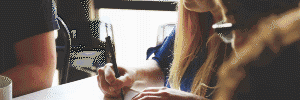The amendments to the Capital Market Law introduced by the Government of Montenegro after the public consultation—specifically, the provisions banning the publication of information, data, and assessments related to the issuance of government securities and introducing fines of up to €40,000—are scandalous and do not exist in any European or democratic country, emphasized Ranko Vujović, Secretary General of the Media Council for Self-Regulation, appearing on the radio show Drugačija radio veza”.
“If such two provisions were to be adopted, it would open the door to various restrictions, a narrowing of media freedom, and the shrinking of media space. The media would be reduced to propaganda instruments of the government. The Minister of Culture and Media certainly knows this is unacceptable and unlikely to pass, but due to coalition agreements, government unity, or who knows what else, they have allowed it to proceed. Still, I don’t believe that officials from the Ministry of Culture or the Directorate for Media haven’t warned them that these two provisions will be highly controversial and stir up a lot of dust in Montenegro,” said Vujović.
Vujović also addressed the political exploitation of the murder of Duško Jovanović, the former editor-in-chief of Dan. He emphasized the need to clearly separate the unacceptable nature of the crime, the serious compromise of state institutions incapable of solving it, and the pressure this has placed on Montenegro’s media scene, from the attempt to portray Dan at the time as a model of independence and professionalism. He stressed that the political forces in power for the past five years have had all the mechanisms at their disposal but have not focused on concrete efforts to finally solve the crime.
“If, as they claim, the DPS had no interest in solving the case, well, they’ve been in power for five years, with full control of the government, the police, the prosecution, and all other institutions. Instead of these theatrical displays, they should concentrate on real work - interrogating everyone connected to the case, reopening investigations, and doing everything possible to bring resolution. As it stands, this seems more like a farce to me, sending the message that they do not intend to actually uncover the perpetrators,” he stated. He reminded that Dan, during that period, was neither independent nor professional.
“We all know that very well, but it seems that some are pushing this narrative to the limit, counting on the fact that out of respect, politeness, or solidarity with the family, no one will say the absolute truth,” Vujović said.
He pointed out that both of these issues pose serious threats to journalism in Montenegro.
“You might remember that back then, as the Association of Independent Electronic Media, we organized what was likely the only major protest march of journalists in Montenegro - right after the murder. It was a large demonstration through Podgorica in protest of what had happened. Out of respect for the victim, no one wanted to discuss the nature of the newspaper - how it operated and what it represented. We all know it was established by Belgrade, by Slobodan Milošević, for his purposes in Montenegro. We know there are transcripts from the sessions of the Yugoslav Army leadership where Dan is mentioned as the army’s mouthpiece. Generals referred to it as their own outlet. So, it's no secret how it came to be, what it was created for, and whom it served. When people try to present Dan from that era as a beacon of professionalism, it provokes a need to speak out,” he said.
He reiterated that this topic had not been addressed publicly for years, mainly out of respect for Jovanović.
“For years we avoided discussing this, but when someone provokes you by claiming that Dan was a model of professionalism, you’re forced to talk about what kind of newspaper it was, what standards it upheld, what it dealt with - was it journalism or propaganda, and whom that propaganda served,” Vujović emphasized.
Speaking about the media landscape in Montenegro in recent years and how it was perceived by the international community, he pointed out that their actions and influence on the media were more focused on political change than on adherence to journalistic standards.
“In Brussels, prior to 2020, although they mentioned every year in their reports that self-regulation in Montenegro was weak, in practice, they did more to obstruct self-regulation. From 2010 to 2020, their sole political goal was regime change in Montenegro. They were willing to sacrifice all resources, including the media they influenced, to achieve that goal,” Vujović recalled.
They were, he added, ready to abandon professional standards entirely to achieve political objectives. Brussels turned a blind eye to the erosion of journalistic standards just to ensure political change in Montenegro.
“That was the reality until 2020, and it was a major mistake in my view. During that time, media abuse and violations of ethics and standards were rampant. But so much focus was placed on political change, and it's unfortunate that it didn’t happen sooner so people could see the consequences. I think many abroad had a completely distorted view of Montenegro, based on skewed information about what was really happening. Now, after all those years, we are facing the outcomes - including laws proposed by the Ministry of Finance that directly infringe upon media freedom,” Vujović stressed.
Reflecting on the increasing tendency of high-ranking state officials to criminalize the media in their public discourse - and the fact that many politicians view their office as giving them authority over the judiciary - Vujović called such reactions immature and insecure.
“These are immature responses - jumping to outrage at the slightest criticism or objection. It shows a deep sense of insecurity. When someone questions what they’re doing, these insecure individuals lash out to protect themselves because, deep down, they know they’re in the wrong,” he explained.
He compared the behavior of local politicians with their regional and global counterparts, emphasizing that our populists are finding more examples to emulate.
“They look at regional leaders and how they treat the media and replicate that behavior. Or they observe Trump, who attacks the media daily. Trump bans Associated Press from reporting at the White House just because he doesn’t like their coverage. When our politicians see this, they think: ‘Why shouldn’t we also go after our media?’ It’s unfortunate that populists - who all react similarly to media criticism - are in power both in America and here,” Vujović concluded.
Source: antenam.net










